UP, Ateneo, DLSU, Philippines’ newsrooms collaborate to fact check
By: The Good News Pilipinas Team
|
Published on: May 3, 2019
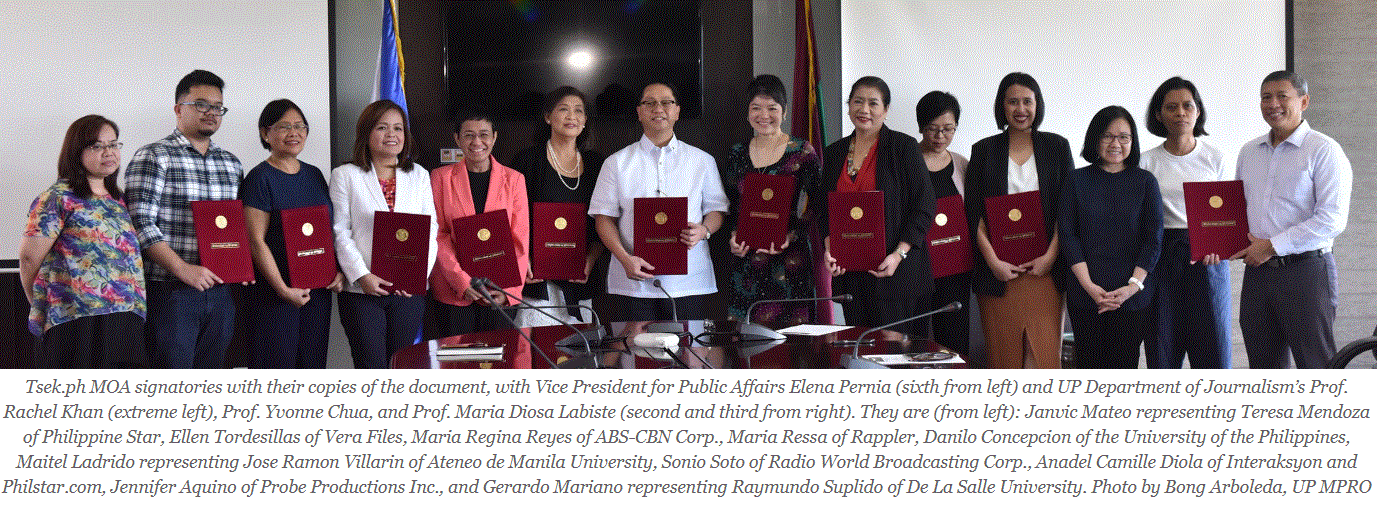
Officials of UP, Ateneo, DLSU, and 11 news organizations collaborate to fact-check elections claims. Image credits to UP MPRO.
The Philippines’ top universities and newsrooms are collaborating on a fact-checking project for the country’s 2019 elections for Tsek.Ph
The University of the Philippines, Ateneo de Manila University, and De La Salle University – top Philippine educational institutions consistently ranked in the Quacquarelli Symonds (QS) World University Rankings – are working with 11 newsrooms across media platforms from radio, television, print, and online to verify and fact-check claims made in connection with the 2019 Philippines’ elections.
Good News Pilipinas Managing Editor Angie Quadra-Balibay talked to UP Diliman professor Ivy Claudio on the MediaWatch radio program of DLSU-D 95.9 Green FM about involving the academe in the fact-checking project.
Prof. Claudio talked about the new class on Fact-Checking she is handling for the UP Diliman College of Mass Communication Department of Broadcast Communication, whose teaching partly includes the program of Tsek.Ph
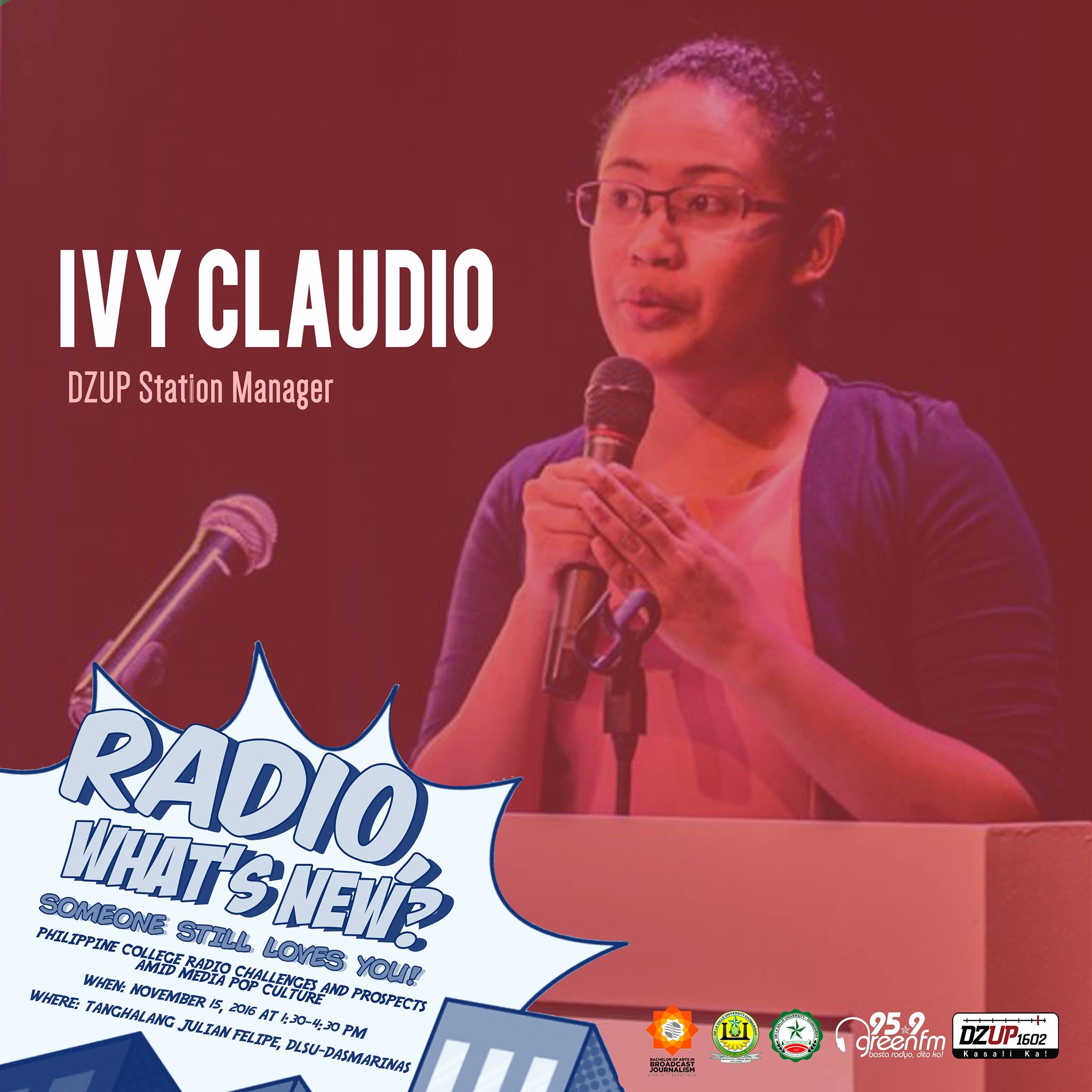
Image credits to DLSU-D 95.9 Green FM.
“Ang trabaho namin i-tsek kung tama ba yung nilalabas nilang (kandidato) statement, claims para iboto sila (Our task is to check the candidates’ statements and claims to get votes),” Claudio explains.
The former station manager of DZUP, the state university’s radio station, clarifies that part of her class work is to study the issues of disinformation, misinformation in the broadcast media.
The class conducts Broadcast Monitoring of candidates’ statements in televised debates and interviews on radio.
“Napakahalaga na bantayan yung sinasabi nila sa radyo. Kasi ang naabot nya ay halos lahat sa buong bansa (It is critical to catch what these candidates are saying on radio because the medium reaches the whole country),” adds Claudio.
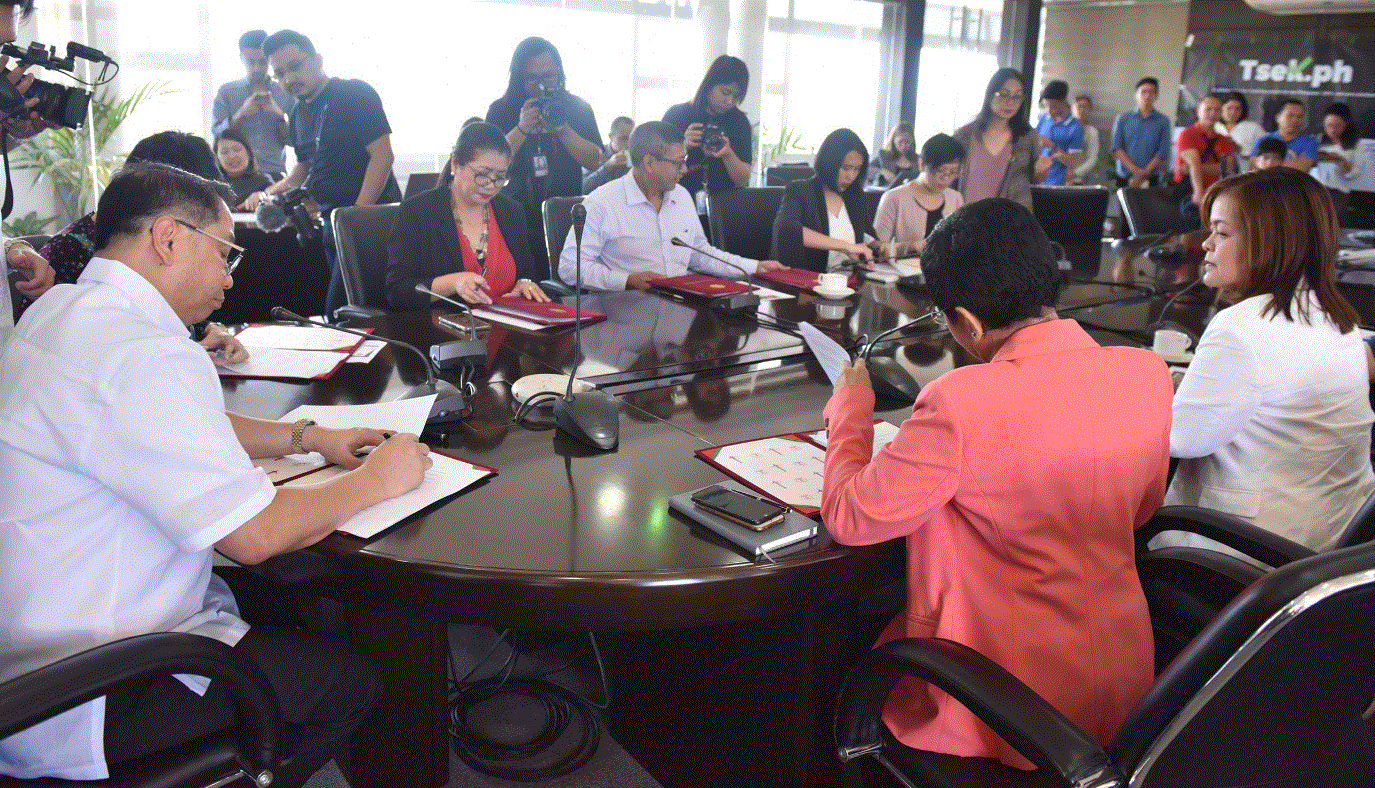
UP hosted the agreement signing between the universities and news organizations. Image credits to UP MPRO
The schools work with established fact-checking organizations and collaborate on the methodologies used to conduct the analyses of election platforms, campaign promises, claims, statements, posts.
Students are taught to research for facts not only on the internet but also on the media and actual documents.
Asked how the fact-checking project can help, Claudio said, “Ang mga kandidato sana dapat mas maging aware na di sila pwedeng basta magbitiw ng fake news o mga facts na di naman totoo para lang may ma-claim sila (The candidates should be aware that they cannot just make false claims).”
“Sa audience naman sa balita di ka lang basta maniniwala kasi pwede mong tingnan yung na fact-checked nang claim (Audience of news can now verify the fact-checked claims).”
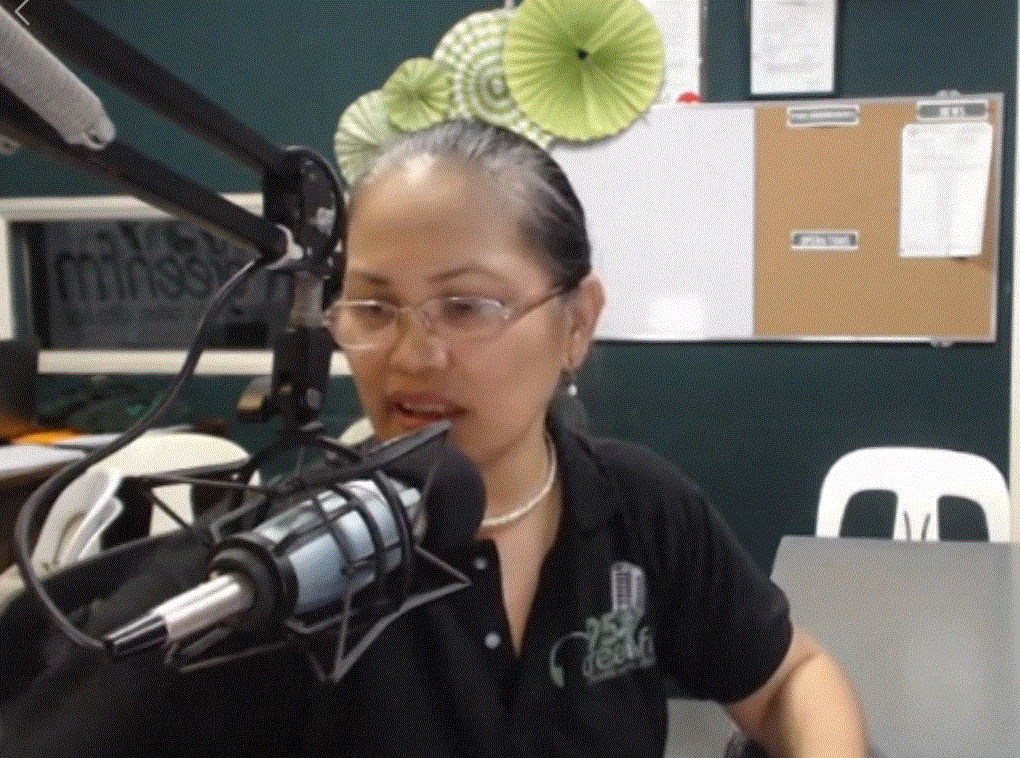
Ivy Claudio is interviewed via phone patch on Angie Quadra-Balibay’s Media Watch radio show on DLSU-D 95.9 Green FM. Image credits to DLSU-D 95.9 Green FM
Claudio says the project is valuable, “Nagsasama-sama ang mga universities at media para ibalik yung trust sa media (It put together the universities and media to bring back the trust in media).
UP, Ateneo, and DLSU are working with media organizations on Tsek.Ph including:
- ABSCBN News
- Baguio Midland Courier
- Central Luzon TV 36
- DZUP 1602
- Interaksyon
- Minda News
- Philippine Star
- PhilStar Global
- Probe
- Rappler
- Vera Files
People can access Tsek.Ph which classifies elections claims using five ratings:
“Accurate”
The statement/claim is demonstrably factual and true.
“False”
The statement/claim is demonstrably contrary to available facts.
“Misleading”
The statement/claim gives a vague or different impression.
“No Basis”
The statement/claim cannot be verified or fact-checked.
“Needs Context”
The statement/claim needs more facts or clarification because it may be taken out of context.
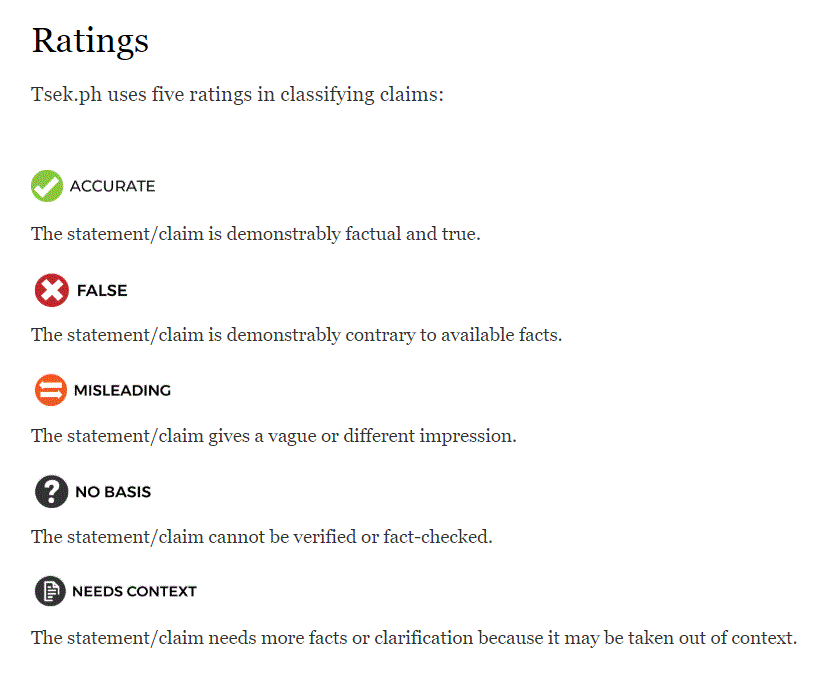
Tsek.Ph Ratings Classification
Tsek.ph is guided by the Code of Principles of the International Fact-checking Network that is committed to fairness and nonpartisanship, transparency of sources, funding and methodology, and openness to corrections.
The project was launched in February spearheaded by 3 UP units – the UPD College of Mass Communication’s (CMC) Journalism Department, the UPD College of Engineering’s Department of Computer Science, and the UP College of Law. It is supported by the Facebook Journalism Project, the Meedan group of open-source investigators of digital media, and the Macaranas Journalism Grant.
Leave your comments below for UP, Ateneo, DLSU, and the 11 news organizations on the Tsek.Ph fact-checking project to stop false information on media and the elections.
If you have a Filipino Pride story to share or you want us to cover, tag us on social media with #GoodNewsPilipinas
Like, Follow, Subscribe to GoodNewsPilipinas.com Facebook, Twitter, Instagram, Good News Pilipinas! TV on YouTube, new story notifications and e-mail newsletters for updates on more Filipino Pride stories.
